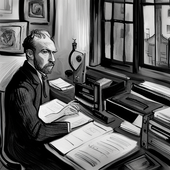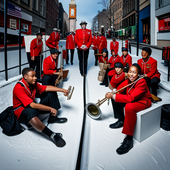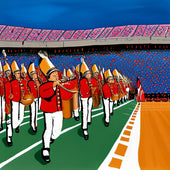As a high school band director, it is always important to evaluate your previous season and learn from it to create an even better experience for your students in the upcoming year. However, it's easy to get caught up in the hustle and bustle of planning for the approaching season and forget to reflect on the past. In this post, we will discuss the importance of mapping out last year's successes and shortcomings to prepare for the new year and how doing so can lead to even greater success and growth.
Celebrate Your Successes
One of the first steps in mapping out last year's successes and shortcomings is to celebrate your successes. Take a moment to acknowledge the fantastic performances, the new skills your students have acquired and the positive experiences that you gave to your band members. When you celebrate successes, you create a sense of accomplishment and reward, which interest admiration from your students. Make it a part of your planning process that every success and accomplishment your band has is celebrated. Doing so will make your band team and students more enthusiastic about the program and strengthen their commitment to the team.
Identify Missed Opportunities
After identifying your successes, it's time to evaluate what could have been done differently or better to ensure growth and positive outcome. By taking the time to evaluate the missed opportunities or shortcomings from the previous season, you can observe where you introduce any new adjustments to the program to adjust for any impediments faced during the previous season. This assessment is the foundation for creating a much better-band program in the future. Having a clear knowledge of your shortcomings enables you to plot new programmes to improve your everyday practices and processes.
Evaluate Student Feedback
The opinions from your students are vital to creating a better band program. They are the backbone of the whole team, so their feedback is essential in spotting the ups and downs of your program. Ask your students to fill out evaluations and provide instant feedback after practices and performances. This feedback will give both positive and negative perspective to highlight what worked and what didn't, generating a platform to make improvements and better procedures in areas that are bearing negative results.
Accept Accountability
As a band director, the accountability of your successes and shortcomings fall on your shoulders. It's important not to shift blame to anyone else, but to take ownership of your shortcomings and learn from them. Learn from your shortcomings and evaluate ways to handle situations differently in the future. Accepting accountability and taking ownership will inspire the students in your band program to do the same. This will make them committed members of the band program and committed to make the band program successful.
Plan for the Future and Move On
Once you have evaluated last year's successes and shortcomings, it's time to plan for the future and move on. Use your reflections and evaluations to make a plan for the new season that includes initiatives to develop weaker areas. Allocate resources to each member's development, create new standards, and modify teaching models for superior outcomes the next season. Remember that planning for the future also involves maintaining a positive outlook on what's to come and taking things one step at a time.
Conclusion:
Mapping out last year's successes and shortcomings is an essential step in preparing for a new season in high school bands. Celebrate your successes, evaluate your shortcomings, and use student feedback to create positive change. Accept accountability for your actions and plan for the future. With these actions, you are setting yourself up for success and are capable of generating a much more incredible band program. By learning from the past, you can guarantee improvement and provide a better band experience for your students in the future.






























